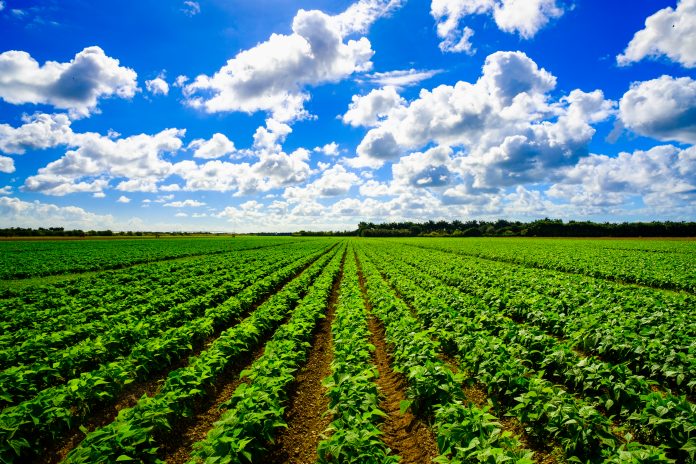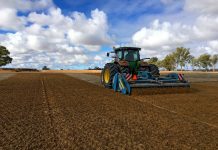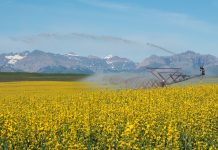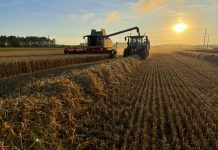The UPSCALE project aims to achieve food security in sub-Saharan Africa by using nature-based solutions inspired by push-pull technology to close the yield gap in smallholder agriculture
Push-pull technology (PPT) was developed at the International Centre of Insect Physiology and Ecology (icipe) in Kenya in 1997. It is a mixed cropping strategy that diversifies conventional cereal cultivation by including perennial fodder plants for biological pest control and other ecosystem services. In PPT, a repellent companion crop (e.g., Desmodium) drives pests away from principal crops (the push), and grasses planted around the field attract and trap the pushed pests (the pull; Fig. 1). Due to the absence of chemical pesticide or fertiliser inputs, smallholder push-pull cereal is de facto organic and well adapted to combine with traditional mixed and livestock farming. Crops grown with PPT show yield increases of 10% to 360% compared to monocultures. PPT also supports biodiversity and lower pest and weed damage, while restoring soil moisture and fertility. It is particularly suited to traditional farming managed by women, empowering African women farmers to build livelihoods, pursue careers, and attain leadership roles in their communities. For all the above, PPT is believed to be one of the most promising and important discoveries for food security and environmentally friendly agriculture of the 21st century. However, PPT faces a set of challenges to its expansion, notably due to high, unexplained variability in yields, failures on the supply chain of seeds and unknown consequences of the large-scale adoption of the system. Moreover, little is known on the transferability of push-pull to other crop systems and different water, soil, climate, land use and socioeconomic conditions.

The UPSCALE project
UPSCALE is a five-year Horizon 2020 Research & Innovation project launched in November 2020. The project aims to take key steps to expand push-pull technology applicability from individual fields to whole landscapes and regions, and from cereal to other important crops and cultivation systems. The overall goal is to address food security, livelihoods and climate change resilience in the sub-Saharan region of East Africa, while reducing the environmental impact of agricultural practices. For this, UPSCALE will foster the design, adaptation and adoption of strategies for integrated agro-ecological management based on PPT, and actively promote their widespread uptake for sustainable and climate-resilient agricultural intensification.
The UPSCALE Consortium comprises a group of 18 partners from four European and six African countries under the lead of the Leibniz University of Hannover in Germany. The expertise of participating partners spans cropping systems ecology, spatiotemporal modelling, chemical ecology, landscape ecology, food-web ecology, soil science and social science, including socioeconomics, sustainability science, gender studies, and policy, and is complemented by strong multi-actor networks and international experts on stakeholder engagement and communication.
Project concept and methodologies
In UPSCALE, we are applying novel ecological methods, modelling tools, quantitative and participative multi-actor social-ecological approaches to assess and improve social-ecological resilience of ecosystem services and productivity of farms under PPT. The project will examine PPT performance across widely varying landscape gradients, across multiple crop systems and under current and future climate change scenarios. Using large-scale biophysical and socioeconomic data, UPSCALE will generate key information for farm management, dissemination and policy decisions, in order to effectively support stakeholder training and streamlining of PPT along the value chain. Additionally, UPSCALE will develop and adapt dissemination toolboxes including a Knowledge Exchange Hub, mobile app, interactive maps and long-lasting multi-actor communities around the practice of push-pull and other sustainable intensification methods. Multi-actor design, intensive dissemination and integration of empirical models for push-pull adoption and effectiveness, are the basis for targeted and rapid spread of push-pull and sustainable intensification information to key stakeholders.
Geographical scope of UPSCALE
The project covers five main study regions within East African countries (Ethiopia, Kenya, Uganda, Rwanda, Tanzania). Each region encompasses different biophysical (including climate, soils, topography) and farming system characteristics. These regions are essential for implementing experimental tasks of the project following a standardised, common study design across countries and form the basis for collaboration and merging with study and dissemination sites of other ongoing and recent projects in the same area.
Expected impacts
UPSCALE will boost yields, incomes, food security, climate resilience, and other positive socioeconomic and gender outcomes while contributing to soil health restoration, water retention, biodiversity enhancement and decreased use of pesticides. It will have a lasting impact beyond the project duration and scope by:
- Providing tools for preserving and increasing natural resources in agroecosystems. Improving soil conditions and proposing solutions for different farming systems, including the potential for transferability across scales and regions.
- Boosting Africa-EU joint research by addressing the entire value chain and focusing on demonstration projects to bring research and innovation results to users.
- Developing solutions and tools for increasing farm income within sustainable farming systems.
- Reducing inequalities by lifting specific groups out of poverty (women, farmers with disabilities, young farmers).
- Providing inspiration to others working on complex and fundamentally transdisciplinary sustainability issues.
- UPSCALE will revolutionise the African agriculture and food sector by increasing the contribution of smallholders to food production in growing urban environments.
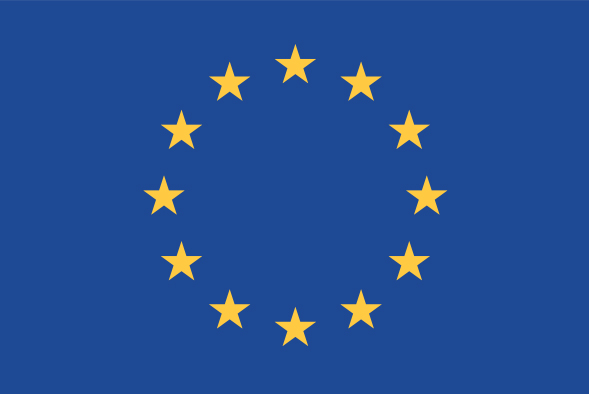
Upscale has received funding from the European Union’s HORIZON 2020 Research programme under the Grant Agreement no. 861998

